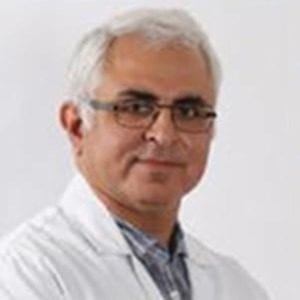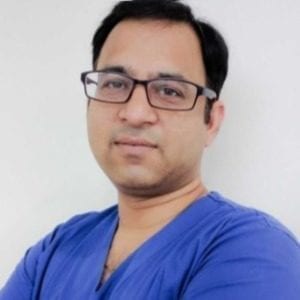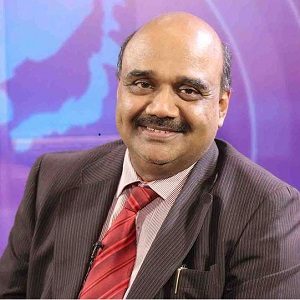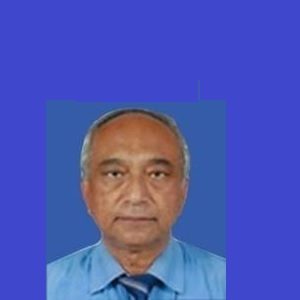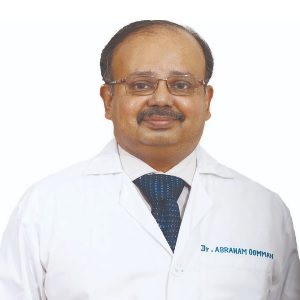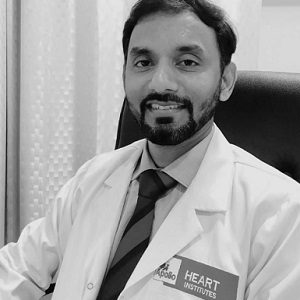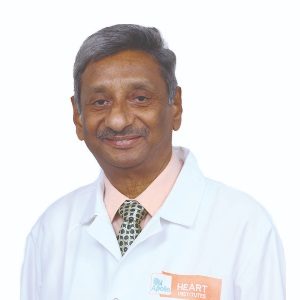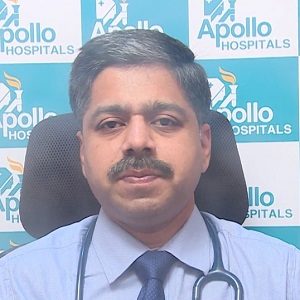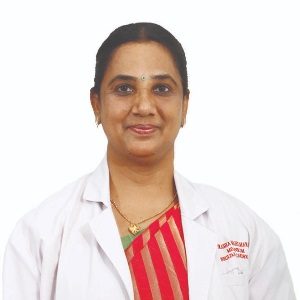Best Doctors in India for Myocardial Perfusion Imaging
- Cardiologist, Gurugram, India
- Over 20 years’ experience
Profile Highlights:
- Dr. Hemant Madan is an experienced and accomplished cardiologist, with a professional experience of around 20 years.
- His expertise includes all aspects of cardiology, including pediatric cardiology, complex coronary interventions, device implantation, all kinds of rhythm disorders, percutaneous treatment of valve stenosis, and peripheral interventions.
- Dr. Madan pursued his Fellowship at the Royal College of Physicians from Edinburgh in UK.
- Cardiac Surgeon, Gurugram, India
- Over 15 years’ experience
Profile Highlights:
- Dr. Rachit Saxena is an experienced cardiac surgeon, who is known for his extreme dedication to his profession, and for providing absolute patient satisfaction.
- Supported by an efficient cardiac surgical team, Dr. Saxena is known for successfully managing the most complex of cardiac surgical problems.
- Dr. Rachit Saxena is known especially known for the capability to perform cardiac surgery with minimal blood requirement and ensure early mobilization and return to work.
- Cardiothoracic Surgeon, Chennai, India
- Over 25 years’ experience
Profile Highlights:
- Dr. T Sundar is one of the best cardiothoracic surgeons in India.
- He is having extensive exposure to critical heart diseases and he has operated on them successfully.
- Dr. T Sundar is a Senior Consultant at Apollo Hospitals since 2003.
- He has been associated with international standards of surgery and diagnosis since his education period.
- Cardiothoracic and Vascular Surgeon, New Delhi, India
- Over 36 years’ experience
Profile Highlights:
- Dr. N Sastri is a renowned cardiothoracic surgeon in India with extensive experience in critical heart surgeries.
- He has nearly 36 years of experience and is a senior consultant- Cardiothoracic & Vascular Surgery with Indraprastha Apollo Hospitals, New Delhi.
- Dr. Sastri specializes in the diagnosis and treatment of vascular disorders using advanced techniques. He has expertise in Total Anomalous Pulmonary Venous Connection Repair, Arterial and Ventricle Defects Surgery, Cardiac Resynchronization Therapy, Balloon Valvuloplasty, CABG LV restoration, PDA Device Closure, PPI, Valve Replacement, and Atrial Fibrillation Surgery.
- Over the years’ Dr. Sastri had treated patients across various countries. In addition to the adult and neonatal cardiac surgeries, he is involved in research and put out many research papers in different medical journals.
- Interventional Cardiologist, New Delhi, India
- Over 47 years experience
Profile Highlights:
- Dr. Prashanta Kumar Ghosh is a senior cardiologist at Indraprastha Apollo Hospital in New Delhi with experience of nearly 47 years in the field.
- Dr. Ghosh has expertise in testing and monitoring cardiac problems. The procedures mainly include minimally invasive cardiac surgery, implantations, device closure for congenital heart diseases, cardiac catheterization, Carotid Angioplasty, Stenting, etc. Half of his experience came from practicing non-invasive cardiology.
- He has so far performed nearly 3 lakh Echos as well as thousands of Doppler and Trans Esophageal Echos in his professional journey.
- Dr. Ghosh has participated in many studies and published papers in various conferences and journals. He also delivers lectures to the students of many institutions across India and abroad.
- Cardiologist, Chennai, India
- Over 31 years’ experience
Profile Highlights:
- Dr. Abraham Oomman is one of the best Cardiologists in Chennai, having an experience of 31 years in this field.
- Dr. Oomman offers consultation and also performs cardiac procedures. He specializes in Preventive Cardiology, Interventional Cardiology, Rheumatic Heart Disease, and Lipidology.
- Patients also visit him for ASD and VSD Surgery, Dextro-Transposition of the Great Arteries (DTGA), Minimally Invasive Cardiac Surgery, and Vascular Surgery.
- Cardiologist, Chennai, India
- Over 22 years’ experience
Profile Highlights:
- Dr. Refai is a world-renowned cardiologist who practices at Apollo Hospital in Greams Road, Chennai.
- Dr. Refai completed advanced training in the United Kingdom after finishing his medical degrees in India.
- He specializes in Angioplasty (Stent implantation), Implantable Cardioverter-Defibrillators (ICDS), Transradial Rotablation, Chronic Total Occlusion Angiography, Pacemaker, Cardiac Invasive Procedures, Bypass Surgery, and other cardiovascular procedures.
- He was involved in many TAVI-related studies at King’s College Hospital in London, and a heart failure pilot trial at The Essex.
- Interventional Cardiologist, Chennai, India
- Over 38 years’ experience
Profile Highlights:
- Dr. I Sathyamurthy is a veteran Cardiologist and has an experience of more than 38 years in Interventional Cardiology.
- Dr. Immaneni Sathyamurthy is a distinguished personality who bagged Padma Shri, the fourth-highest Indian civilian award. In addition to it, he was conferred many awards for his contribution to the medical sciences.
- He has over 250 publications to his credit, some of these are used as textbooks in medical courses.
- Interventional Cardiologist, Chennai, India
- Over 25 years’ experience
Profile Highlights:
- Dr. Karthigesan A M is a renowned Interventional Cardiologist with more than two decades of experience.
- He completed advanced training in cardiac arrhythmia in the USA to serve his patients in a better way.
- Dr. A M Karthigesan received several awards from prestigious associations for his contribution to the field.
- Dr. Karthigesan authored several research papers and articles in premier periodicals and presented papers at national conferences.
- Interventional Cardiologist, Chennai, India
- Over 32 years’ experience
Profile Highlights:
- Dr. Asha Mahilmaran is a seasoned Interventional Cardiologist in Chennai, with more than three decades of expertise in the sector.
- She excelled in academics and was awarded a gold medal in medicine and cardiology.
- Dr. Mahilmaran offers Ventricular Septal Defect Surgery, Cardioversion, Carotid Artery Disease, Chest Pain Treatment, Cardiac Ablation, and Dextro-Transposition of the Great Arteries (DTGA), etc.
- Over the years, she has performed over 15,000 preventive heart checkups.
Best Hospitals in India for Myocardial Perfusion Imaging
Myocardial Perfusion Imaging
Our heart muscle needs a steady flow of blood for functioning properly and staying healthy. Myocardial Perfusion Imaging (MPI) is a non-invasive method that lets your doctor evaluate this blood flow. The scans can also be used to look for damage after a heart attack and for determining if any previous treatment has helped.
While perfusion assessment might require you to exercise, the testing process is safe as well as painless.
Purpose
An MPI test is able to show how well blood is able to flow through the heart muscle. If the test shows a lack of blood flow during stress or exercise but is normal at rest, then it can mean that an artery that carries blood to your heart might be narrowed or blocked.
If the test is showing a lack of blood flow to a portion of the heart muscle during exercise or stress, and at rest, it can mean that your heart muscle is scarred, possible from a previous heart attack.
MPI tests can help your doctor in various ways such as:
- Finding out if there are blockages or narrowings in your coronary (heart) arteries if you are having chest discomfort
- Determining if you need to undergo a coronary angiogram
- Determining if you have heart damage from a heart attack if your heart is not functioning normally
- Deciding whether you would benefit from the coronary stent or bypass surgery for treating your chest discomfort or helping an abnormal pumping function go back to normal
- Determining how well your heart is able to handle physical activity
- Determining if a heart procedure you had to improve your blood flow is working properly
Preparation
Let your doctor know about any medications that you take, such as over-the-counter medicines, vitamins, or herbs. He/she may ask you not to take them before your test. Remember not to stop taking your medication until your doctor tells you to.
Your doctor might ask you to avoid certain foods, such as caffeine-containing beverages, such as tea, coffee or soft drinks, or chocolate, for around 24 hours before the test is performed. The test might need to be postponed or canceled if you consume caffeine.
Remember to wear comfortable and loose-fitting clothing as well as comfortable shoes to exercise in.
Procedure
The test is performed in a hospital or a clinic with special equipment.
The technician places small metal disks known as electrodes on your chest, arms, and legs. These disks have wires that hook up to a machine for recording your electrocardiogram. The ECG can keep track of your heartbeat during the test, and can be used to tell the camera when taking a picture is required.
You will next wear a cuff around your arm in order to keep track of your blood pressure. Your technician will be putting an intravenous line in your arm. Then you will need to exercise on an exercise bicycle or on a treadmill. If you are unable to exercise, due to certain conditions, then your IV line is connected to a bag that has a medicine, for increasing the blood flow, to your heart. This medicine has an effect similar to when you exercise, and makes the heart go faster.
When you reach the peak activity level, you will need to stop after which you will receive a small amount of radioactive material through your IV line.
You will lie still on your table for a few minutes while the gamma camera will take pictures of the heart. During this time, several scans are done to provide pictures of thin slices of your entire heart from all different angles. It is also very important to be completely still with your arms above your head, as the pictures are being taken.
While you are resting, you will be receiving more tracer, and another set of pictures will be taken as well. This set of images is going to be compared to the images taken after exercise or stress.
The test generally takes between 3- 4 hours. Some labs can choose to do the two parts of the test on different days.
After the procedure
You should be able to resume your normal routine right away. Remember to drink plenty of water to flush the radioactive material from your body.
Next, you will need to make an appointment with your doctor in order to discuss the test results and the next steps.
Risks
There are certain risks that are associated with an MPI test.
Sometimes the exercise part of the test can lead to rare instances of abnormal heart rhythms or chest pain. Sometimes it might also lead to a heart attack due to the stress on the heart that is caused by the exercise.
The needle that is used to inject the IV might cause some pain. The injection of the radioactive tracer might also cause a little discomfort. Although rare, sometimes there might be allergic reactions to the tracer.
Make sure you talk to your doctor regarding the amount of radiation used during the procedure and the risks related to your particular situation.
Depending on your specific medical conditions, there might be sometimes a few other risks as well. Therefore before you undergo the procedure, make sure your doctor knows about all your medical conditions.

